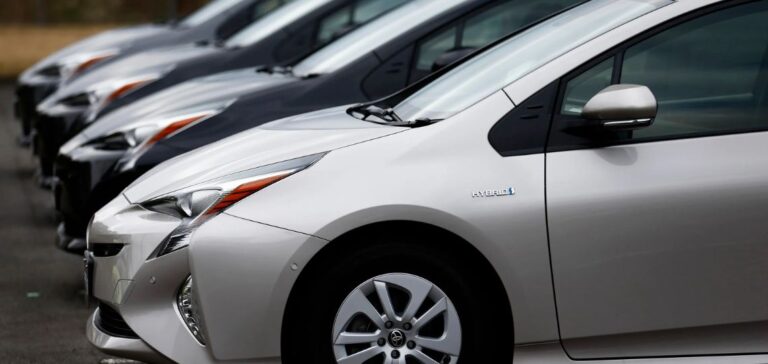Hybrid car registrations in Europe surpassed petrol vehicle sales in January 2025, accounting for 34.9% of the market, according to data from the European Automobile Manufacturers Association (ACEA). This 18.4% year-on-year increase highlights a growing consumer trend towards more fuel-efficient engine options.
Decline in petrol car sales
Meanwhile, petrol car sales saw a significant 18.9% decline in January, particularly in France and Germany. Petrol models now account for 29.4% of the European market, while diesel vehicles, once dominant, now make up just 10% of registrations, marking a 27% drop year-on-year.
An alternative between petrol and electric
Hybrid vehicles, combining petrol and electric engines, provide a more fuel-efficient and cost-effective alternative to fully electric models. This combination is attracting a growing number of European buyers, especially as 100% electric models, despite rising 34% year-on-year, still represent only 15% of total registrations. The adoption of electric vehicles varies significantly across countries, with notable growth in Belgium, Germany, and Italy, but stagnation compared to December 2024.
Challenges for car manufacturers
Despite the rise in electric vehicle sales, some manufacturers are facing difficulties. Tesla, for instance, saw its European sales drop by 45% in January 2025, with only 9,945 vehicles sold compared to 18,161 the previous year. This decline is partly attributed to the political stance of its CEO, Elon Musk, particularly his support for far-right parties in Europe, which may have deterred some customers. As a result, Tesla’s market share in Europe fell from 1.8% to 1%.
A pressured automotive market
The European automotive market as a whole contracted by 2.1% in January 2025, with declining combustion engine sales outweighing the gains from electric and hybrid vehicles. Major markets, including France, Italy, Germany, and the United Kingdom, experienced drops, while Spain saw a slight increase. This trend reflects the ongoing challenges faced by the industry despite efforts to promote greener vehicles.
ACEA has expressed concerns over the ambitious CO2 emissions reduction targets set by the European Union, suggesting that regulatory flexibility may be needed to prevent market stagnation. ACEA Director General Sigrid de Vries stated that the EU must do everything necessary to ensure an effective transition to zero-emission mobility while preserving the global competitiveness of the European automotive industry.






















